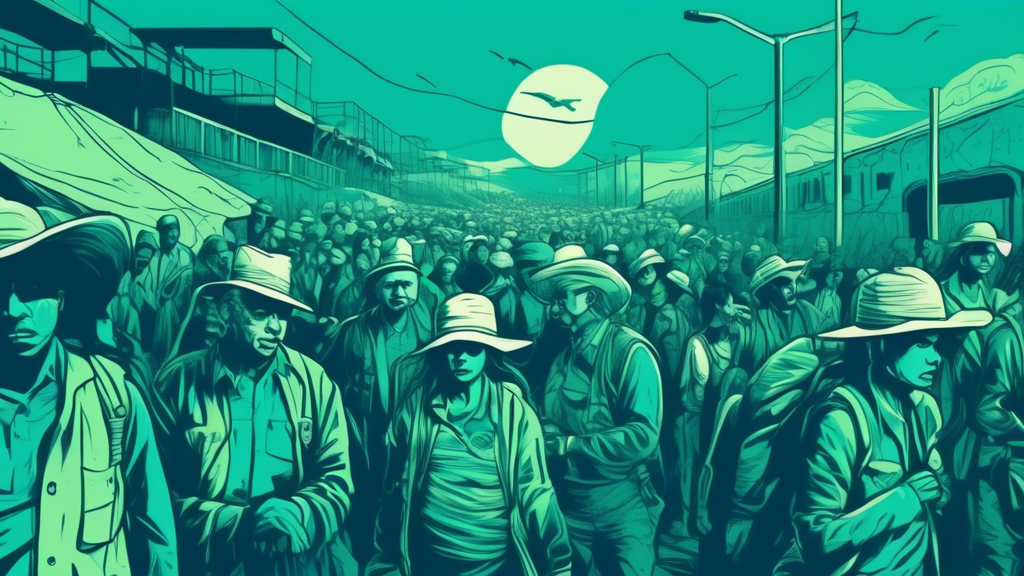
Biden’s Executive Order: A Shift in Asylum Policies
In a recent decisive move, President Biden issued an executive order on June 4, 2024, targeting the processing of asylum claims at the U.S.-Mexico border. This order, effective immediately, stipulates that when the average daily number of unauthorized crossings exceeds 2,500 over a week, the processing of most asylum claims would be temporarily suspended. This measure is intended to curb the large influx of migrants at the border, a persistent challenge for the administration.
Individuals who cross the border unlawfully find themselves facing swift removal from the country. With this new order, unless they can prove exceptional circumstances, most migrants face a truncated process that aims to address the long-standing issues of prolonged stay and backlog in immigration courts. The executive order hopes to streamline the border’s management while maintaining some semblance of regulatory oversight on immigration flow.
Impacts on Asylum Seekers and Legal Grounds
The executive order invokes section 212(f) of the Immigration and Nationality Act. This provision empowers the president to bar migrants’ entry if necessary. Past administrations have similarly leveraged this power to cope with illegal migration surges. However, the current restrictions limit asylum seekers’ opportunities significantly, raising eyebrows across humanitarian and legal spheres. Individuals desiring asylum must now pass a heightened credible fear screening process to prove their cases, a hurdle many deem inequitable and onerous.
As the order directly affects the migrants’ legal rights to seek asylum, critics and advocacy groups have mounted challenges against it. Entities like the American Civil Liberties Union (ACLU) argue that the order undermines legal frameworks intended to protect individuals fleeing from harm, leading to inevitable judicial contests. The landscape of asylum policies in the U.S. stands at a potential turning point, with legal battles likely looming on the horizon.
Broader Implications and Humanitarian Concerns
The intent behind the order, as officials assert, is to manage border control effectively while reducing strain on immigration infrastructure. Nonetheless, humanitarian organizations have expressed grave concerns about the broader repercussions. The restriction not only pushes migrants to take more dangerous routes, risking their lives but also exacerbates conditions in already crowded shelters in Mexico. This raises critical questions about the ethical implications and humanitarian responsibilities associated with such policies.
With unauthorized crossings remaining high, despite some reduction, the administration’s measure aims to recalibrate the migration patterns at the southern border. However, this may come at a social and ethical cost, potentially leading to increased human suffering and precarious living conditions for those seeking safety.
Political and Public Reaction
The political ripples from the executive order see a divide among partisanship lines, with some members of Biden’s own Democratic Party voicing disappointment. Conversely, other Democrats argue that it’s a necessary step towards securing the border and addressing a nationally polarizing issue. Meanwhile, Republicans criticize the order as insufficiently robust. The United Nations and other international bodies have also weighed in, pointing to the potential erosion of asylum seekers’ rights and the international implications of the U.S.’s stance on refugee protection.
As the nation grapples with this new chapter in border policy, the long-term implications for the U.S. asylum framework remain uncertain. The balance between securing national borders and upholding humanitarian commitments continues to challenge policymakers, posing profound questions about the future trajectory of America’s immigration policies.
